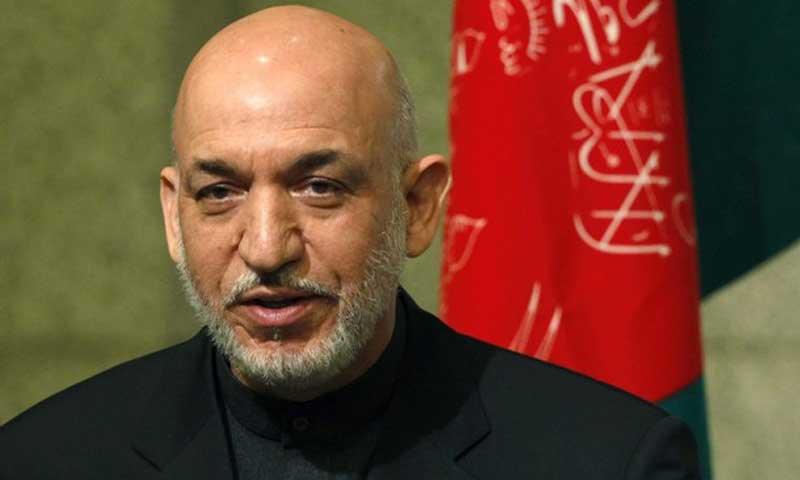KABUL: Afghanistan's president, Hamid Karzai, has lined up a high-profile negotiating team to thrash out a critical long-term security deal with the US, raising hopes that talks suspended in June might restart soon.
The national security adviser, Rangin Dadfar Spanta, and former finance minister Dr Ashraf Ghani will represent the Afghan government in negotiations on the bilateral security agreement whenever they start again, said Aimal Faizi, a spokesman for Karzai.
In a further glimmer of hope for diplomats, Faizi said that while Karzai had not yet decided to restart talks, a national convention to approve a final draft could be held within two months, suggesting he is considering authorising a new round of negotiations.
The bilateral security agreement will provide a framework for American soldiers to stay on in Afghanistan after the Nato combat mission ends next year.
The troops will not be fighting on the ground but they are expected to train Afghan forces and provide vital support in areas where the national army is weak, from intelligence to air power. Without them the Afghan army and police will probably struggle to hold off the Taliban.
If there is no deal, billions of dollars of promised aid to pay salaries for the large Afghan security forces and develop the fragile economy are also unlikely to be paid to Kabul.
On the other side of the table in talks will be the US ambassador to Kabul, James Cunningham, and the top US and Nato commander in Afghanistan, General Joseph Dunford. They already know both Spanta and Ghani, who has a track record of success in difficult talks and helped secure a long-awaited deal for the handover of Bagram prison from US authorities.
Karzai suspended talks with the US after the Taliban opened an office in Doha that looked like the embassy of a government in exile, complete with flag and nameplate — a move, he argued, that violated US promises about how the political office would work.
While the impasse has remained unresolved, an informal late October deadline set by the US is approaching fast.
Karzai said a resumption of talks would depend on the peace process being entirely Afghan but has offered little clarity over how he might determine that.
His spokesman declined to be drawn on whether Karzai might be willing to announce a resumption of talks, saying the government was in no hurry.
“That date (for resuming talks) is up to the president,” said Faizi, the spokesman. “Its a very important document, so we don't want to make blunders and mistakes ? We are not in a hurry, better to have a good document, or the US can sign one with the next government.”
But Faizi also said that a loya jirga — a traditional gathering of delegates from around the country, which Karzai has promised will be convened to approve any deal - may happen this autumn.
“If everything goes well we could have a loya jirga in a month and a half,” Faizi said. The gatherings usually take at least a month to organise, raising hopes of fast progress.
The working draft was hammered out by up to 15 working groups, headed by the ambassador to Washington on the Afghan side and the deputy special representative for Afghanistan and Pakistan on the US side.
With that document in place, negotiations are set to move up a notch. The complex working draft is believed to be more than two-dozen pages long. And there are still multiple sticking points.
“This will be a stage of political bargaining,” said Faizy, adding that the main obstacle from the Afghan government's perspective was US reluctance to provide “assurances about strengthening the Afghan economy and security forces”, or a guarantee of protection from “foreign aggression”.
With an election looming in April 2014 and a deal needed in time for the US to arrange the removal of people and equipment, Dunford has said the deal is vital.
The US embassy did not respond to requests for comment.
By arrangement with the Guardian













































Dear visitor, the comments section is undergoing an overhaul and will return soon.